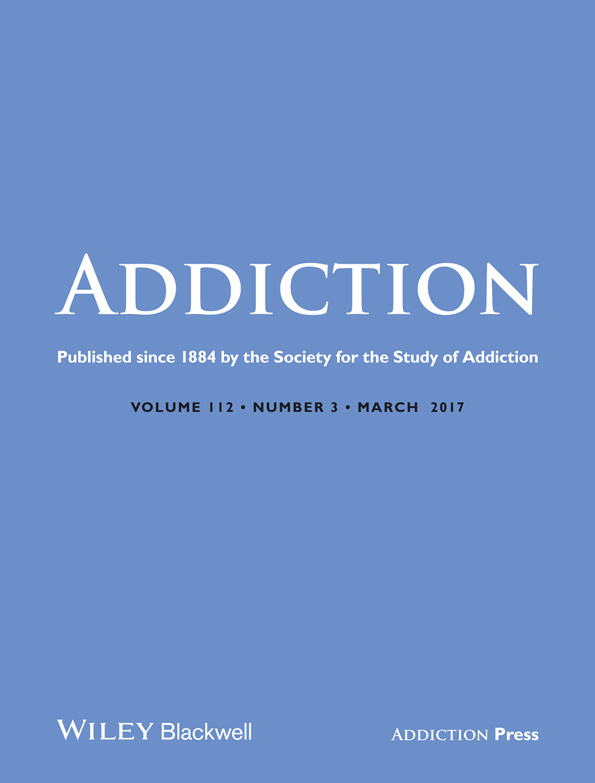Commentary on Mathew et al. (2017): Improving the effectiveness of interventions to reduce smoking among people living with severe mental ill-health
Addressing low positive affect, high negative affect and the presence of cognitive impairment as part of smoking cessation care as suggested by Mathew and colleagues may enhance the provision of such care by mental health professionals. Community and national policy changes and pragmatic approaches are also likely to be helpful.
People with severe mental ill-health (SMI)—mental health challenges with complex symptoms that require ongoing treatment and management—die typically approximately 20 years earlier than the general population, due largely to smoking-related diseases 1. Smokers with SMI are a growing proportion of all smokers 2, because smoking is not declining at the same rate among people living with SMI as among the general population 3. Studies have shown that, in addition to increased mortality, smoking in people with SMI is also associated with more symptoms of mental ill-health, increased hospitalizations and higher required psychiatric medication dosages 4. It is also related to the acceleration of metabolism of some anti-depressant and anti-psychotic medications by components of tobacco smoke 5. A recent meta-analysis found that quitting smoking is associated with improved quality of life and reduced depression, anxiety and stress 6.
Although people with SMI are approximately as likely to want to quit as those in the general population 7, mental health staff tend not to support service consumers in smoking cessation 8, as they tend to lack knowledge about tobacco dependence and smoking's relationship with mental ill-health 9. Mental health staff often believe mistakenly that: tobacco is a necessary self-medication; quitting smoking interferes with recovery; smoking is the lowest-priority concern for people with SMI; and that people with SMI are not interested or cannot quit smoking 4.
Effective interventions developed for smokers experiencing mental ill-health are needed urgently. Recently, Mathew and colleagues 10 suggested targeting aspects of depressive symptomatology and expectancies and beliefs around the mood regulating effects of smoking with psychological and/or pharmacological interventions. Their systematic review of cigarette smoking and depression comorbidity brings a welcome new level of sophistication to smoking interventions. Taking into account symptoms of mental ill-health and understanding of how these might act to maintain smoking is linked by Matthew and colleagues to incentive learning theory. Such a theoretical underpinning to continued smoking may assist mental health staff to understand why smoking is so hard to give up among their patients and how they might assist. Addressing aspects of mental ill-health, such as low positive affect, high negative affect and/or the presence of cognitive impairment, is common when working in mental health settings. These symptoms are experienced by many smokers with mental ill-health; not only those with major depression, but also people with psychotic illnesses and people with substance use problems. Using this approach to address the three aspects of depressive symptomatology could be useful across various diagnostic groups of smokers.
In addition to the suggestion by Mathew and colleagues to target adverse internal states and beliefs about the high value of smoking, it would make good clinical sense to address smoking when treating co-existing alcohol and other drug use with the aim of improving substance use outcomes 11, 12. This form of integrated intervention is being recognized increasingly as potentially useful in substance use treatment 13. Behavioural activation as suggested by Mathew et al. 10 is particularly worthy of consideration as part of smoking interventions among people with SMI, as it will probably be broadly helpful in alleviating symptoms of mental ill-health and improving quality of life, as well as assisting smoking cessation.
Apart from individual-level approaches, community and national policy changes are likely to be of assistance in helping people with SMI reduce their smoking. In addition to targeting enjoyable or rewarding experiences, McKay has suggested recently that people with substance use problems may need assistance in finding or building sources of reinforcement in the environments in which they live 14. Social isolation, unemployment, poverty and stigma may act to reduce the reinforcers available in the environment. Smoking interventions may be more likely to succeed if some or all of these barriers to reinforcement were addressed. McKay also suggests the utility of community-based mutual support programmes that can provide some of the incentives that makes cessation more appealing. More widespread use of mutual aid support groups such as SMART Recovery or 12-Step groups for smoking cessation maintenance could potentially reduce social isolation and help with longer-term behavioural changes.
Finally, smoking quit rates are modest among people with mental ill-health (e.g. Baker et al. 15). Pragmatic approaches such as electronic cigarettes should also be trialled alongside individual interventions and community-level programmes among smokers who try and fail to give up smoking 16.
Declaration of interests
None.




